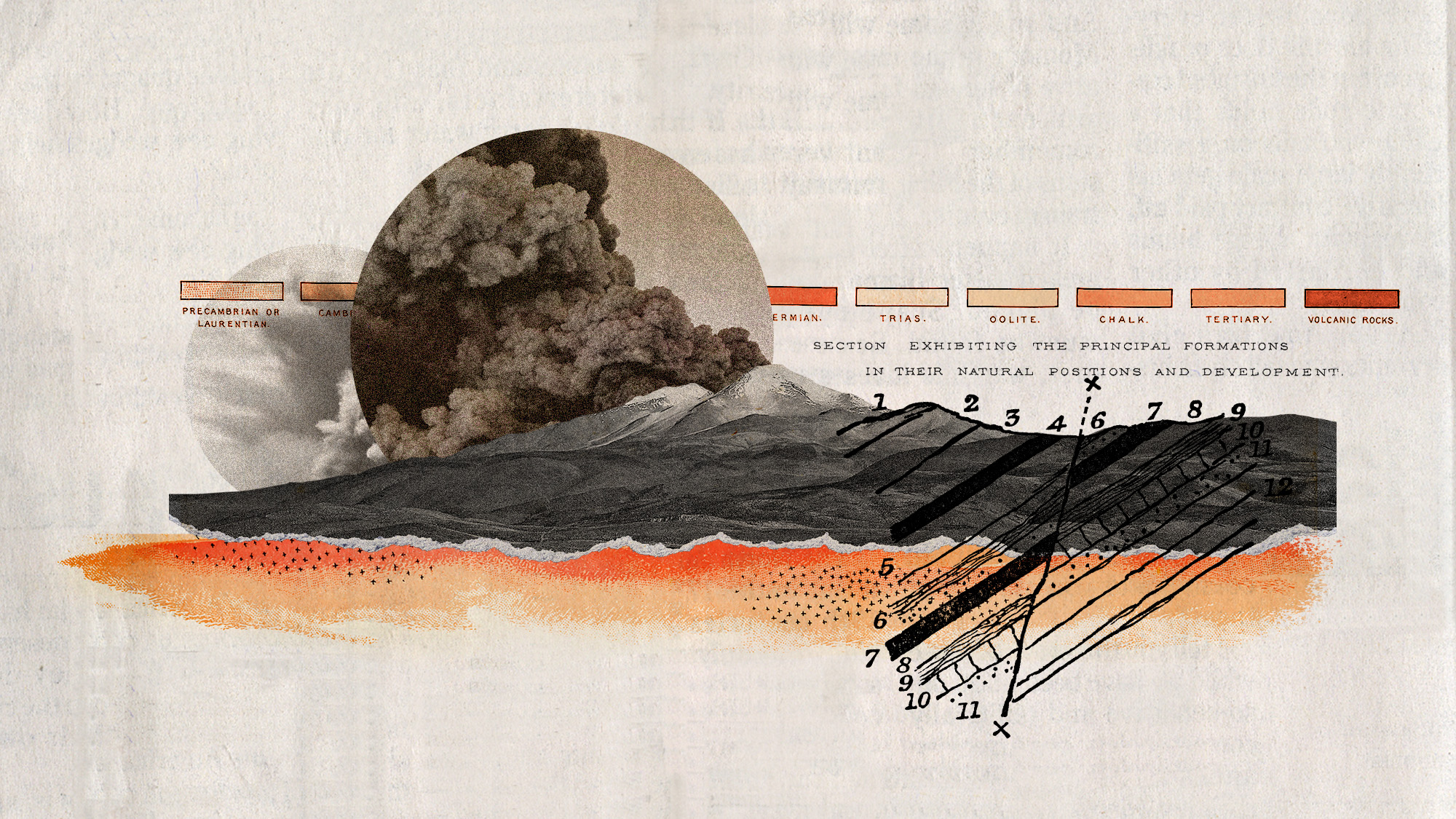The paradox of atmospheric cooling
Why the atmosphere is warming and cooling at the same time


A free daily email with the biggest news stories of the day – and the best features from TheWeek.com
You are now subscribed
Your newsletter sign-up was successful
An unexpected consequence of climate change known as upper atmospheric cooling has finally been confirmed by satellite sensors. While proving the accuracy of our previous climate models, the phenomenon has experts "very worried," according to Yale Environment 360.
What is upper atmospheric cooling?
Upper atmospheric cooling is the phenomenon in which, "while the blanket of air close to the Earth's surface is warming, most of the atmosphere above is becoming dramatically colder," as defined by Yale Environment 360. A new study published in the journal Proceedings of the National Academy of Sciences proved the existence of the phenomenon, which had long been predicted by climate modelers. The study "yields incontrovertible evidence of human effects on the thermal structure of Earth's atmosphere."
Earth's atmosphere is made up of five layers: the troposphere, stratosphere, mesosphere, thermosphere and exosphere. The troposphere is the first layer above the Earth that extends 5 to 9 miles above the Earth's surface. It's where we see weather patterns, according to Space.com. As the layers go up, they get less dense. Most people's knowledge of climate change deals with the lower layers of the atmosphere, which is where we see higher average global temperatures and more severe storm systems. However, carbon dioxide and other greenhouse gas emissions "manifest throughout the entire perceptible atmosphere," Martin Mlynczak, an atmospheric physicist at the NASA Langley Research Center, told Yale E360.
The Week
Escape your echo chamber. Get the facts behind the news, plus analysis from multiple perspectives.

Sign up for The Week's Free Newsletters
From our morning news briefing to a weekly Good News Newsletter, get the best of The Week delivered directly to your inbox.
From our morning news briefing to a weekly Good News Newsletter, get the best of The Week delivered directly to your inbox.
Carbon dioxide impacts the upper atmosphere differently than the lower atmosphere. In the lower atmosphere, CO2 traps heat, causing warmer temperatures. However, "In the thinner air aloft, most of the heat reemitted by the CO2 does not bump into other molecules. It escapes to space," Yale E360 stated. "Combined with the greater trapping of heat at lower levels, the result is a rapid cooling of the surrounding atmosphere." Per the study, it's "virtually impossible for natural causes to explain satellite-measured trends in the thermal structure of the Earth's atmosphere."
Why are scientists concerned?
Lead author of the study Ben Santer explained that humans are "fundamentally changing" the thermal structure of the atmosphere, Yale E360 reported. The rate of cooling is causing the stratosphere to contract, in turn reducing the density of the atmosphere as a whole. The troposphere is growing while the stratosphere is shrinking, Phys.org explained. Carbon dioxide is "driving dramatic changes scientists are just now beginning to grasp," Mlynczak continued.
The density decrease "has its effect of reducing the atmosphere's drag on satellites and other objects in low orbit," according to The Energy Mix. The drag can then increase "the risk of collisions among low-orbit debris." Scientists are also concerned about the impact the cooling will have on the ozone layer, located in the lower stratosphere. The most intense ozone destruction occurs in "polar stratospheric clouds that form over low-temperature regions."
Changes in the upper atmosphere could potentially also spell changes for the lower atmosphere, as well. For example, stratospheric wind and temperature changes could influence the Atlantic jet stream, which heavily influences our weather systems. In turn, we could see more extreme weather events, especially coupled with factors such as warming oceans and rising tropospheric temperatures. Gary Thomas, an atmospheric physicist, remarked, "If we don't get our models right about what is happening up there, we could get things wrong down below." The findings depict the need to move away from fossil fuels as emissions will only make the temperature disparity between the upper and lower atmosphere greater.
A free daily email with the biggest news stories of the day – and the best features from TheWeek.com
As Yale E360 wrote, "The sky is falling — literally."
Devika Rao has worked as a staff writer at The Week since 2022, covering science, the environment, climate and business. She previously worked as a policy associate for a nonprofit organization advocating for environmental action from a business perspective.
-
 Democrats push for ICE accountability
Democrats push for ICE accountabilityFeature U.S. citizens shot and violently detained by immigration agents testify at Capitol Hill hearing
-
 The price of sporting glory
The price of sporting gloryFeature The Milan-Cortina Winter Olympics kicked off this week. Will Italy regret playing host?
-
 Fulton County: A dress rehearsal for election theft?
Fulton County: A dress rehearsal for election theft?Feature Director of National Intelligence Tulsi Gabbard is Trump's de facto ‘voter fraud’ czar
-
 How climate change is affecting Christmas
How climate change is affecting ChristmasThe Explainer There may be a slim chance of future white Christmases
-
 Why scientists are attempting nuclear fusion
Why scientists are attempting nuclear fusionThe Explainer Harnessing the reaction that powers the stars could offer a potentially unlimited source of carbon-free energy, and the race is hotting up
-
 Canyons under the Antarctic have deep impacts
Canyons under the Antarctic have deep impactsUnder the radar Submarine canyons could be affecting the climate more than previously thought
-
 NASA is moving away from tracking climate change
NASA is moving away from tracking climate changeThe Explainer Climate missions could be going dark
-
 What would happen to Earth if humans went extinct?
What would happen to Earth if humans went extinct?The Explainer Human extinction could potentially give rise to new species and climates
-
 Bacteria can turn plastic waste into a painkiller
Bacteria can turn plastic waste into a painkillerUnder the radar The process could be a solution to plastic pollution
-
 A zombie volcano is coming back to life, but there is no need to worry just yet
A zombie volcano is coming back to life, but there is no need to worry just yetUnder the radar Uturuncu's seismic activity is the result of a hydrothermal system
-
 'Bioelectric bacteria on steroids' could aid in pollutant cleanup and energy renewal
'Bioelectric bacteria on steroids' could aid in pollutant cleanup and energy renewalUnder the radar The new species is sparking hope for environmental efforts
